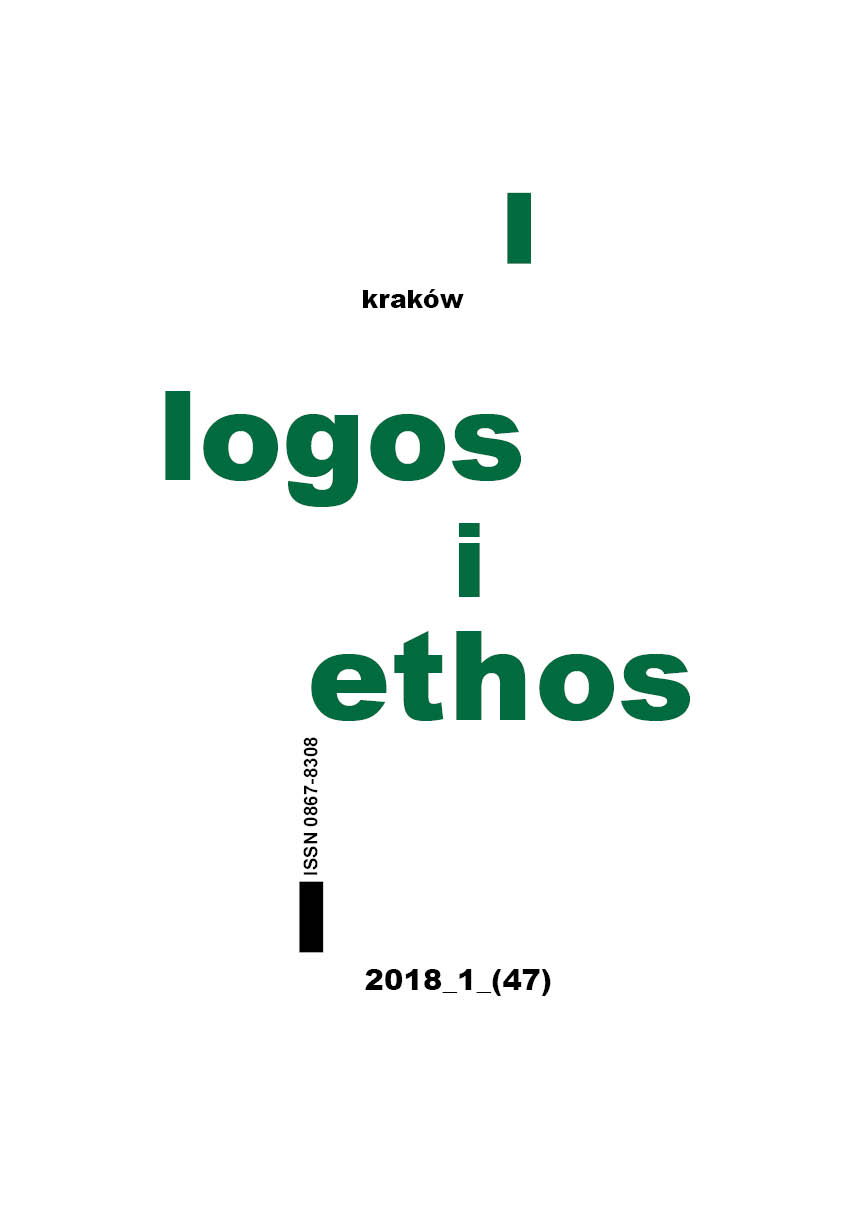Karola Wojtyły krytyka koncepcji osoby Maxa Schelera
DOI:
https://doi.org/10.15633/lie.2556Słowa kluczowe:
osoba, świadomość, sprawczość osoby, , przeżycie etyczne, sumienieAbstrakt
Artykuł rekonstruuje Karola Wojtyły krytykę koncepcji osoby, świadomości, przeżycia etycznego autorstwa Maxa Schelera. Scheler, zdaniem Wojtyły, oderwał w swej etyce świadomość od istnienia osoby, zacieśnił przeżycie etyczne do emocjonalnego przeżywania wartości, wyrugował osobowe sprawstwo czynu, normatywne funkcjonowanie sumienia, powinność moralną, wartości etyczne, czyli zniekształcił właściwe rozumienie dobra moralnego i jego praktyczną realizację.
Osoba, według krakowskiego myśliciela, nie jest sumą świadomych przeżyć, ale realnie istniejącym bytem, aktualizującym się w aktach poznania i w aktach działania. Świadomość nie może być oderwana od realnego istnienia osoby, gdyż jest jej aktem. Przeżycie etyczne to nie tylko doznanie treści wartości, ale doświadczenie powinności moralnej, nakazu sumienia, doświadczenie tego, że jestem sprawcą czynu.
W sumie propozycja etyki Schelera, zdaniem jej krytyka, nie nadaje się do adekwatnego wyjaśnienia postępowania moralnego, do ukazania realnej sprawczości osoby i jej doskonalenia się poprzez czyn.
Bibliografia
Biesaga T., Pojęcie osoby a zasada jakości życia we współczesnej bioetyce, w: Ocalić cywilizację – ocalić ludzkie życie, red. Z. Morawiec, Kraków 2002, s. 53–64.
Biesaga T., Sumienie, w: Powszechna encyklopedia filozoficzna, red. A. Maryniarczyk i in., t. 9, Lublin 2008, s. 267–270.
Hildebrand D. von, Christian Ethics, New York 1952.
Hołub G., Problem osoby we współczesnych debatach bioetycznych, Kraków 2010.
Ingarden R., O odpowiedzialności i jej podstawach ontycznych, w: R. Ingarden, Książeczka o człowieku, Kraków 1987, s. 71–170.
Półtawski A., Fenomenologiczne podstawy etyki według Karola Wojtyły, w: Jan Paweł II. Posługa myślenia, red. J. Kupczak OP, D. Radziechowski, Kraków 2011, s. 33–42 (Studia nad Myślą Jana Pawła II, 9).
Scheler M., Der Formalismus in der Ethik und die materiale Wertethik. Neuer Versuch der Grundlegung eines ethischen Personalismus, Halle 1916.
Seifert J., The Right to Life and the Fourfold Root of Human Dignity, w: The Nature and Dignity of the Human Person as the Foundation of the Right to Life, the Challenges of the Contemporary Cultural Context, Proceedings of the VIII Assembly of the Pontifical Academy For Life (Vatican City, 25–27.02. 2002), eds. J. De Dios Vial Correa, E. Sgreccia, Vatican City 2003, s. 183–215.
Spaemann R., Osoby. O różnicy między czymś a kimś, tłum. J. Merecki, Warszawa 2001.
Wojtyła K., O humanizmie św. Jana od Krzyża, w: K. Wojtyła, Aby się Chrystus nami posługiwał, Kraków 1979, s. 387–401.
Wojtyła K., Ocena możliwości zbudowania etyki chrześcijańskiej przy założeniach systemu Maxa Schelera, w: K. Wojtyła, Zagadnienie podmiotu moralności, red. T. Styczeń, J. W. Gałkowski, A. Rodziński, A. Szostek, Lublin 1991, s. 7–128 (Człowiek i Moralność, 2).
Wojtyła K., „Osoba i czyn” oraz inne studia antropologiczne, red. T. Styczeń, W. Chudy, J. W. Gałkowski, A. Rodziński, A. Szostek, Lublin 1994 (Człowiek i Moralność, 4).
Wojtyła K., Problem teorii moralności, w: W nurcie zagadnień posoborowych, red. B. Bejze, t. 3, Warszawa 1969, s. 217–251.
Wojtyła K., System etyczny Maxa Schelera jako środek do opracowania etyki chrześcijańskiej, w: K. Wojtyła, Zagadnienie podmiotu moralności, red. T. Styczeń, J. W. Gałkowski, A. Rodziński, A. Szostek, Lublin 1991, s. 129–158 (Człowiek i Moralność, 2).
Wojtyła K., W poszukiwaniu podstaw perfekcjoryzmu w etyce, w: K. Wojtyła, Zagadnienie podmiotu moralności, red. T. Styczeń, J. W. Gałkowski, A. Rodziński, A. Szostek, Lublin 1991, s. 201–212 (Człowiek i Moralność, 2).
Wojtyła K., Zagadnienie woli w analizie aktu etycznego, w: K. Wojtyła, Zagadnienie podmiotu moralności, red. T. Styczeń, J. W. Gałkowski, A. Rodziński, A. Szostek, Lublin 1991, s. 181–200 (Człowiek i Moralność, 2).
Pobrania
Opublikowane
Numer
Dział
Licencja
Autorzy publikujący w czasopiśmie udzielają jego wydawcy zgody o następującej treści:
- Autor zachowuje autorskie prawa majątkowe do utworu, a jednocześnie udziela wydawcy czasopisma zgody na jego pierwszą publikację w wersji drukowanej i wersji online na licencji Creative Commons Uznanie autorstwa 4.0 Międzynarodowe oraz zgody na wykonywanie opracowań, w tym przekładów.
- Autor ma możliwość udzielania zgody niewyłącznej na opublikowanie utworu w wersji, która ukazała się w czasopiśmie (np. zamieszczenia go w repozytorium instytucjonalnym lub opublikowania w książce), wraz z informacją o jego pierwszej publikacji w czasopiśmie.
- Autor może umieścić swój utwór online (np. w repozytorium instytucjonalnym lub na swojej stronie internetowej) jeszcze przed zgłoszeniem utworu do czasopisma.

